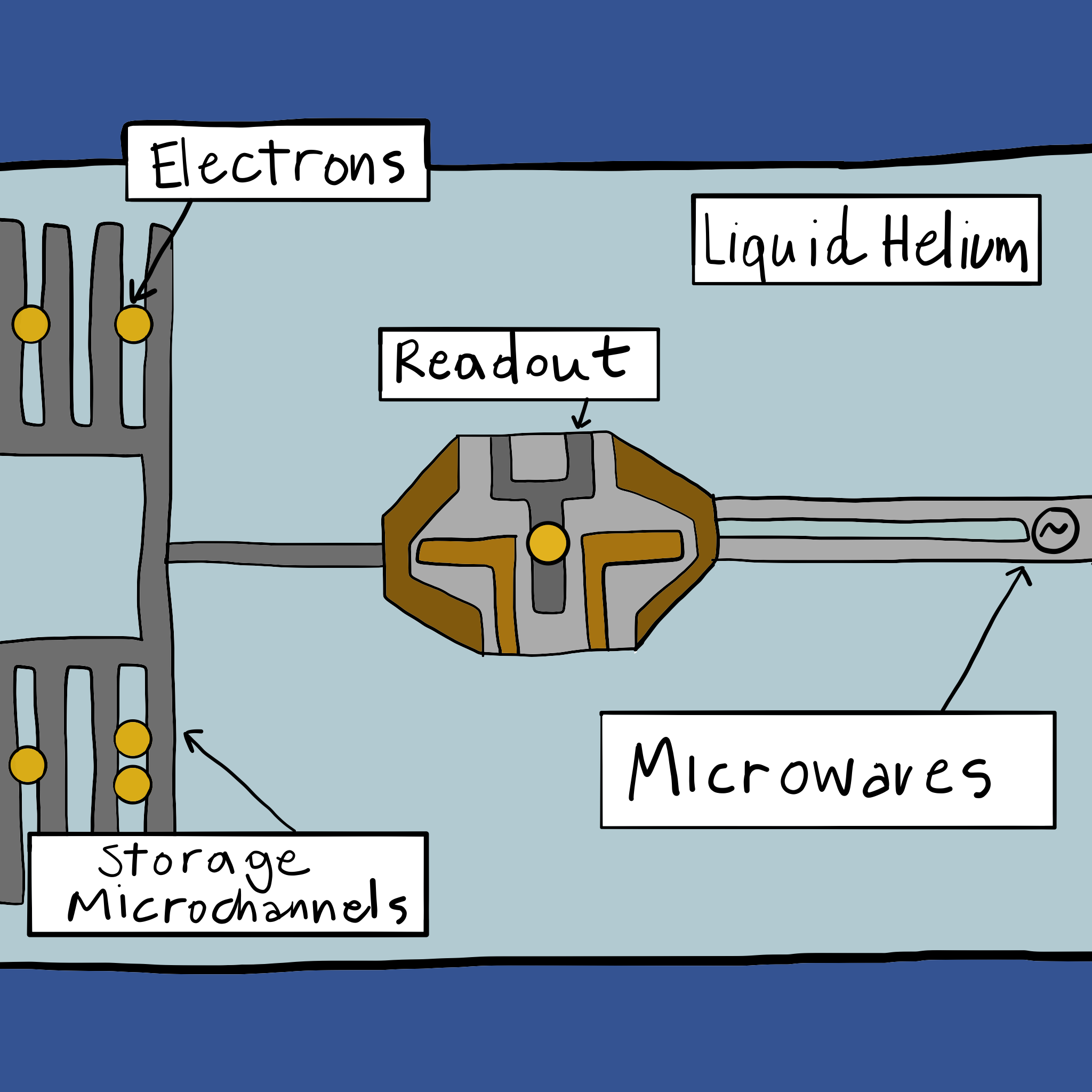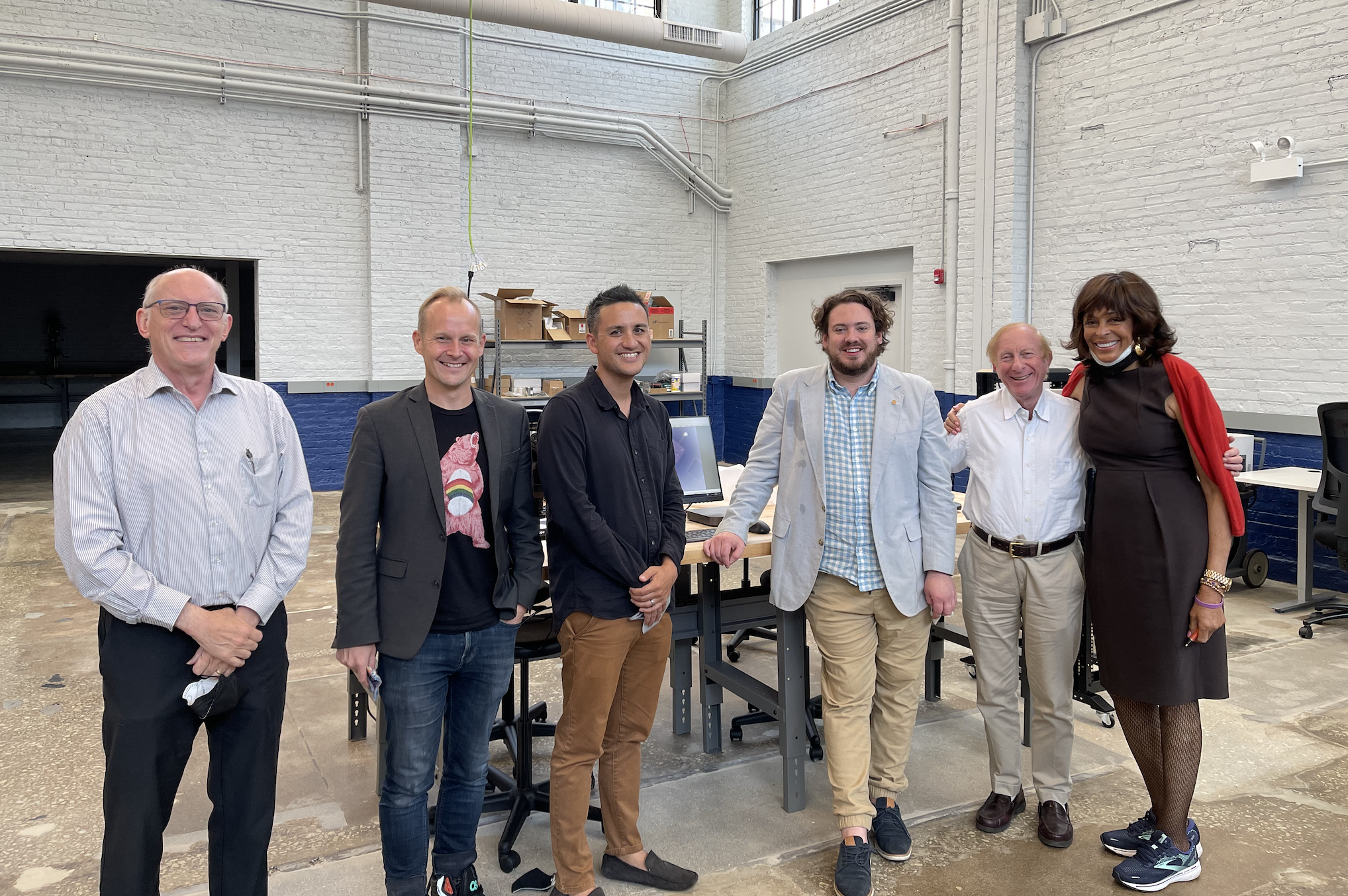It’s still early days for quantum computing, but we’re currently seeing rapid improvements in the underlying hardware and software foundations for this new computing paradigm. And just like during the early days of classical computing, different hardware players are betting on very different approaches to how to build these machines. There’s IonQ with its trapped ion approach, D-Wave using quantum annealing and IBM, Rigetti and others with their bet on building a superconducting gate model machine. All of these approaches have their pros and cons and may eventually find their niches for solving different kinds of problems.
EeroQ, which announced a $7.25 million seed funding round today, is taking a somewhat different approach to these other players by betting on mass-produced CMOS chips that use electrons floating on liquid helium to power the core of its quantum processors. The advantage of this, the EeroQ team argues, is that it allows for very long coherence times (close to 10 seconds), fast gates and the ability to quickly scale the technology to thousands of qubits (though it isn’t quite there yet). The company was founded in 2017 and the team spent the last few years working on the fundamental science behind these designs. The company recently added Princeton Electrical & Computer Engineering Professor Steve Lyon as CTO and completed its headquarter and lab in Chicago.
“We’re the only company that is pursuing electrons and helium — and electrons and helium, it’s an almost identical system to silicon spin qubits. […] The only difference is that what we’re trying to do is, instead of having the single electron spin be embedded inside this silicon — which has all types of possible defects — [ours] actually floats on top of a layer of liquid helium. The really cool thing here, just from a pure science effective, is that the electron is attracted to its own image and therefore it’s trapped naturally,” EeroQ CEO Nick Farina explained. Ideally, this means that EeroQ’s design will have all of the benefits of spin qubits, including their long coherence time, with the advantage of having a system that can be scaled up more easily. And while noise will always be an issue for any quantum computer design, the electron-on-helium design offers some natural resistance by default. There’s a reason, after all, why the current time in quantum computing is typically called the ‘noisy intermediate-scale quantum (NISQ)’ era.
“I think there are multiple valid ways to build a quantum computer,” Farina said. “And I think that in the NISQ era, over the next five years by the middle of the decade, you’re going to see multiple success stories of creating real customer value using different types of qubits. I think there’s a point at which scalability will start to separate the field.”
That’s obviously also what EeroQ’s investors are betting on. The company’s seed round was led by B Capital’s Ascent Fund, with participation from V Capital, Alumni Ventures, Unbound Ventures, Calibrate Ventures and Red Cedar Ventures. B Capital’s chair Howard Morgan and its senior principal Morgan Polotan will join the company’s board.
In an interview, Howard Morgan noted that he has had a long interest in quantum computing but it wasn’t until B Capital’s new Ascent Fund closed earlier this year that he had a vehicle for making these more adventurous early-stage investments. “We started talking about Nick [Farina] and what they were doing. And we started to dig in and I realized that it was one of the only very differentiated technologies. It was not going down the paths that all the other people have gone down. It was developed with Michigan State and Princeton University and we had a way to pretty much lock up all the patents and all the intellectual property, so we could work on it because everybody else was ignoring it completely,” Morgan said and added that the promise of the technology’s scalability was also a major reason why the firm decided to invest.



